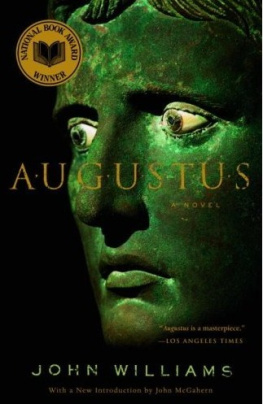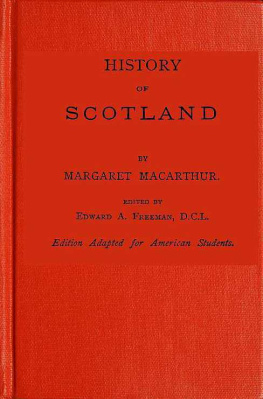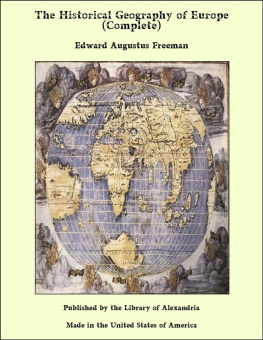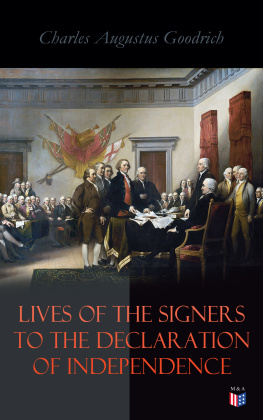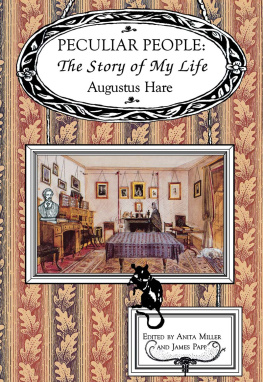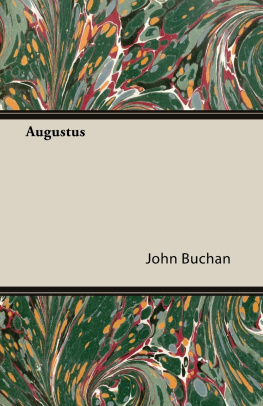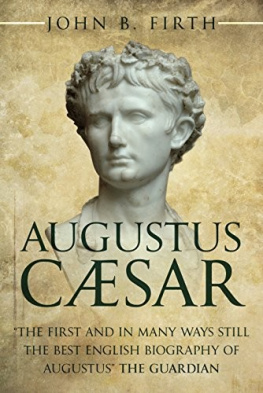John Edward Williams - Augustus
Here you can read online John Edward Williams - Augustus full text of the book (entire story) in english for free. Download pdf and epub, get meaning, cover and reviews about this ebook. year: 2004, publisher: Vintage International, genre: Science. Description of the work, (preface) as well as reviews are available. Best literature library LitArk.com created for fans of good reading and offers a wide selection of genres:
Romance novel
Science fiction
Adventure
Detective
Science
History
Home and family
Prose
Art
Politics
Computer
Non-fiction
Religion
Business
Children
Humor
Choose a favorite category and find really read worthwhile books. Enjoy immersion in the world of imagination, feel the emotions of the characters or learn something new for yourself, make an fascinating discovery.
- Book:Augustus
- Author:
- Publisher:Vintage International
- Genre:
- Year:2004
- Rating:4 / 5
- Favourites:Add to favourites
- Your mark:
- 80
- 1
- 2
- 3
- 4
- 5
Augustus: summary, description and annotation
We offer to read an annotation, description, summary or preface (depends on what the author of the book "Augustus" wrote himself). If you haven't found the necessary information about the book — write in the comments, we will try to find it.
Augustus — read online for free the complete book (whole text) full work
Below is the text of the book, divided by pages. System saving the place of the last page read, allows you to conveniently read the book "Augustus" online for free, without having to search again every time where you left off. Put a bookmark, and you can go to the page where you finished reading at any time.
Font size:
Interval:
Bookmark:

Acclaim for John Williams's
AUGUSTUS
"Novel or history, this is an excellent book. A superior work of the imagination."
Playboy
"It would be easy to over-praise this novel; but there does not seem any adequate reason why this temptation should be resisted, especially as Mr. Williams in his turn resists the obvious one of allowing irony too prominent a part in the proceedings."
The Economist
"A pleasure to read. A most polished performance."
Boston Herald Traveler
"Strong and striking. Intelligent and intuitive, this excellent historical novel makes the world of Ancient Rome a place in which we feel instantly at home."
Publishers Weekly
"A novel of extraordinary range, yet of extraordinary minuteness, that manages never to sacrifice one quality for the other."
Financial Times
ALSO BY JOHN WILLIAMS
Nothing But the Night
The Broken Landscape
Butcher's Crossing
The Necessary Lie
Stoner

John Williams
A UGUSTUS
John Williams was born on August 29,1922, in Clarksville, Texas. He served in the United States Army Air Force from 1942 to 1945 in China, Burma, and India. The Swallow Press published his first novel, Nothing But the Night, in 1948, as well as his first book of poems, The Broken Landscape, in 1949. Macmillan published Williams's second novel, Butcher's Crossing, in 1960.
After receiving his B.A. and M.A. from the University of Denver, and his Ph.D. from the University of Missouri, Williams returned in 1954 to the University of Denver where he taught literature and the craft of writing for thirty years. In 1963 Verb Publications published his second book of poems, The Necessary Lie. In the same year, Anchor Books published English Renaissance Poetry, an anthology he edited. The Viking Press published his third novel, Stoner, in 1965. It was in 1963 that Williams received a fellowship to study at Oxford University where he received a Rockefeller grant that enabled him to travel and research in Italy for his last novel, Augustus, published by the Viking Press in 1972. John Williams died in Fayetteville, Arkansas, on March 4, 1994.
FOR NANCY
Augustus was John Williams's most successful novel, winning the National Book Award in 1973, and has appeared in America in four editions since then. Using the epistolary form - fictional memoirs, dispatches, letters - it tells the story of Octavius, a sensitive and scholarly nineteen-year-old, who on the death of his great-uncle Julius Caesar finds himself heir to the vast power of the Roman Empire, now plunged in civil strife by Caesar's murder. Gradually, through a combination of luck, guile, ruth-lessness and intelligence, he succeeds in bringing what was then most of the civilized world under the rule of law, giving to Rome an unprecedented period of peace and prosperity. He became the first Roman emperor, Augustus Caesar (63 BC-AD 14).
To achieve this, he had to overcome many obstacles, not least his own nature, in order to put down the challenges of such men as Cicero, Brutus, Cassius, and finally Mark Anthony. Late in his life he imprisoned and exiled his daughter Julia to a remote island under a law he had enacted for adultery, a daughter he was so devoted to that he supervised her education at a time when it was unusual for a woman to be given any schooling. What emerges from the brilliant play of lights, that the fictional epistles become, is a fascinating portrait in an extraordinary time of a complicated private and public man. Amidst his family, friends and enemies, he deals with the exactitudes that the use and retention of power imposes, and all is brought to such immediate life that it feels as present as Washington today. This is a man who shaped himself in order to shape the world, who put as much faith in superstition as in his intelligence, who loved to gamble on the races and in private to play at dice, preferring the rigours of the battlefield and the solitude of the study to the luxury and pomp of office. As a friend of Virgil and of Horace he wanted nothing more than to be a scholar/writer in his youth. He played, in his time, so many roles that at the end he was able to come into the knowledge of the contrariness hidden at the heart of all experience and the ultimate futility of power.
It was more nearly an instinct than knowledge, however, that made me understand that if it is one's destiny to change the world, it is his necessity first to change himself. If he is to obey his destiny, he must find or invent within himself some hard and secret part that is indifferent to himself, to others, and even to the world that he is destined to remake, not to his own desire, but to a nature that he will discover in the process of remaking.
John Williams's four novels are so different from one another in subject matter, setting and time that it has been said that they could pass for the work of four different writers. This is at once both true and untrue. Williams himself discounted his first novel Nothing But the Night and while the talent is obvious it is fair to say that it is less achieved than his other novels. In the powerful and savage Butcher's Crossing he turns to three men who ride into Colorado to hunt for buffalo. At a time when buffalo herds were hunted to extinction they get wind of an undiscovered valley filled with buffalo in the high Rockies. They find this Eden of woods and streams and lush grass with a great herd grazing at peace. The leader of the gang is Miller, an experienced hunter, and they are all betrayed by Miller's obsession to kill every head in the herd while the worsening weather cuts off their retreat. In this anti-western there are no heroes and no villains. At times the raw power of the writing is almost unbearable as the story unfolds against all the easy myths Hollywood and the East invented for the West.
Stoner followed, the finest novel I know of university life, and it is the single work that most closely shadows Williams's own life and career, though it is set a generation back, in the first half of the twentieth-century. Williams grew up poor in Texas during the Depression. His grandparents were dirt farmers, his stepfather a janitor in the post office. Before the Second World War he worked as an announcer at small Texas radio stations. In the war he served in the Army Air Force as a radio operator on aircraft transporting supplies and troops in India, Burma and China, and during breaks in these missions wrote Nothing But the Night. At a loose end after the war, he rewrote the novel several times. It was accepted by Swallow Press in Denver, which was run by Allen Swallow, who had revitalized the reputations of Yvor Winters and Allen Tte. Swallow encouraged Williams to go to college on the GI Bill and get a teaching degree. Not unlike Stoner, he received his B.A. and M.A. from the University of Denver, his Ph.D. from the University of Missouri and began his teaching career.
The transition from a buffalo hunt to Stoner is dramatic enough by any standard, but the leap from Stoner to Augustus Caesar, from an unregarded academic to the most powerful man on earth in his time, is even more so. In a rare and fascinating interview Williams gave to Bryan Wooley in 1985, he argues that the transition from Stoner to Augustus wasn't as great as it might appear:
I was dealing with governance in both instances, and individual responsibilities, and enmities and friendship. In a university, professors and others are always vying for power, and there's really no power there. If you have any power at all, it's a nothing. It's really odd that these tilings should happen in a university but they do. Except in scale, the machinations for power are about the same in a university as in the Roman Empire or Washington.
Font size:
Interval:
Bookmark:
Similar books «Augustus»
Look at similar books to Augustus. We have selected literature similar in name and meaning in the hope of providing readers with more options to find new, interesting, not yet read works.
Discussion, reviews of the book Augustus and just readers' own opinions. Leave your comments, write what you think about the work, its meaning or the main characters. Specify what exactly you liked and what you didn't like, and why you think so.

